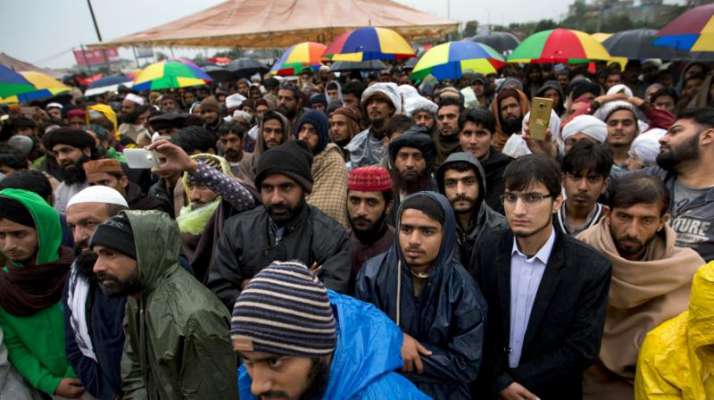A Pakistani high court on Friday ordered that anyone seeking public office should declare his religious belief, a verdict said to be a major victory for hardliners in the Muslim-majority country.
Islamabad High Court (IHC) judge Shaukat Aziz Siddiqui announced the verdict in a case about controversial changes in the Khatm-i-Nabuwwat (finality of prophethood) oath in the Elections Act 2017.
The judge ruled that it was compulsory for all Pakistanis to take an oath regarding their faith if they seek to join the civil service, the armed forces or the judiciary.
“Citizens applying for jobs in state institutions must take an oath which ensures compliance with the definition of Muslim and non-Muslim provided in the Constitution,” Justice Siddiqui said the short order.
Siddiqui took up the case when a group of hardline clerics blocked a major highway leading to capital Islamabad in November 2017 to protest against the changes in the oath and ended the protest after government sacked law minister Zahid Hamid.
The clerics alleged that the Elections Act 2017 changed the oath to facilitate Ahamdiyya people who were declared as non-Muslims by the parliament in 1974.
Khatm-i-Nabuwwat is core of Islamic faith and means that Mohammad is the last prophet and there will be no prophet after him.
Ahmadiyyas were declared as non-Muslims for not allegedly believing in Khatm-i-Nabuwwat.
Hardline clerics allege that Ahmadiyyas hide their true faith to join sensitive jobs and had been demanding that it should be mandatory that everyone applying for public office should declare his beliefs.
The problem arises as the Ahmadiyyas do not consider them as non-Muslims and use names like other people in Pakistan. Normally, it is not possible to identify someone as Ahmadiyya.
“The Khatm-i-Nabuwwat oath is the foundation of our religion and it is the duty of every Muslim to protect this core belief,” Justice Siddiqui said in the order.
The judge also said that hiding religious belief was fraud and asked the National Database and Registration Authority (Nadra) to give a deadline to correct religion in identification documents in case it was wrong.
Justice Siddiqui further ordered that educational institutions must ensure that teachers appointed to teach Islamic Studies should be true Muslims. He further ordered that faith of a citizen should be mentioned in birth certificate, national identity cards, voter list and passports.
The verdict is major victory of hardliners who were pressing that Ahmadiyyas working in government offices should be identified.








